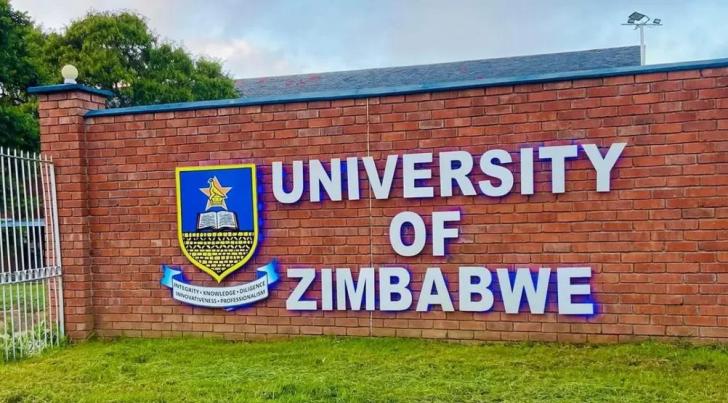News / National
Mnangagwa spokesperson concedes UZ lecturers have genuine grievances
27 Apr 2025 at 17:30hrs |
0 Views

President Emmerson Mnangagwa's spokesman, George Charamba, has admitted that University of Zimbabwe (UZ) lecturers, who have been picketing outside the campus over poor wages and working conditions, have legitimate concerns that need urgent attention.
Charamba, writing on his X (formerly Twitter) account under his pseudonym Jamwanda 2, pledged to personally intervene in the matter.
"Frankly, our university lecturers have a genuine grievance. I will take it up!" Charamba declared, acknowledging the plight of the academic staff represented by the Association of University Teachers (AUT).
The lecturers, describing themselves as "incapacitated," say their current financial situation has rendered them unable to perform their duties effectively. They are protesting what they term "slave wages" and deteriorating working conditions.
Self-exiled former Higher and Tertiary Education Minister Professor Jonathan Moyo also weighed in, blasting the government and UZ management for what he called their "shocking administrative failure" and "abuse of duty." Writing on his X account Friday, Moyo described the lecturers' meager salaries as a "national disgrace" and warned that the situation threatens Zimbabwe's economic future and national security.
"The university authorities and the ministry cannot escape the indictment that their inability to redress the situation is a shocking administrative failure," said Moyo.
"Not only is this a national embarrassment, but it is also a threat to the country's economic interests with national security implications."
Moyo, an architect of the Science, Technology, Engineering, and Mathematics (STEM) policy during his time in government, emphasized that without proper support for academic staff, Zimbabwe's development goals would remain unattainable.
"It would be impossible for Zimbabwe to defeat hunger, poverty, disease, ignorance, and corruption without intellectual property generated by higher education, particularly but not only through STEM," Moyo said.
Lecturers claim that since the unilateral slashing of their salaries in October 2018, they have been trapped in enforced poverty. They allege that while their salaries were decimated — with current pay averaging around US$230, including a ZWG component worth less than US$200 — UZ management awarded themselves hefty perks, luxury vehicles, and prioritized non-essential projects over staff welfare.
"They are living in a different world," one AUT representative said.
The lecturers are demanding a return to their pre-2018 salary levels of around US$2,250, vowing to maintain their protest outside UZ premises until the issue is resolved. Academic services at UZ have ground to a halt as the number of protesting lecturers grows daily.
The strike has significantly disrupted university operations, escalating pressure on both UZ authorities and the government to find a lasting solution.
Charamba, writing on his X (formerly Twitter) account under his pseudonym Jamwanda 2, pledged to personally intervene in the matter.
"Frankly, our university lecturers have a genuine grievance. I will take it up!" Charamba declared, acknowledging the plight of the academic staff represented by the Association of University Teachers (AUT).
The lecturers, describing themselves as "incapacitated," say their current financial situation has rendered them unable to perform their duties effectively. They are protesting what they term "slave wages" and deteriorating working conditions.
Self-exiled former Higher and Tertiary Education Minister Professor Jonathan Moyo also weighed in, blasting the government and UZ management for what he called their "shocking administrative failure" and "abuse of duty." Writing on his X account Friday, Moyo described the lecturers' meager salaries as a "national disgrace" and warned that the situation threatens Zimbabwe's economic future and national security.
"The university authorities and the ministry cannot escape the indictment that their inability to redress the situation is a shocking administrative failure," said Moyo.
"Not only is this a national embarrassment, but it is also a threat to the country's economic interests with national security implications."
"It would be impossible for Zimbabwe to defeat hunger, poverty, disease, ignorance, and corruption without intellectual property generated by higher education, particularly but not only through STEM," Moyo said.
Lecturers claim that since the unilateral slashing of their salaries in October 2018, they have been trapped in enforced poverty. They allege that while their salaries were decimated — with current pay averaging around US$230, including a ZWG component worth less than US$200 — UZ management awarded themselves hefty perks, luxury vehicles, and prioritized non-essential projects over staff welfare.
"They are living in a different world," one AUT representative said.
The lecturers are demanding a return to their pre-2018 salary levels of around US$2,250, vowing to maintain their protest outside UZ premises until the issue is resolved. Academic services at UZ have ground to a halt as the number of protesting lecturers grows daily.
The strike has significantly disrupted university operations, escalating pressure on both UZ authorities and the government to find a lasting solution.
Source - NewZimbabwe
Join the discussion
Loading comments…










































